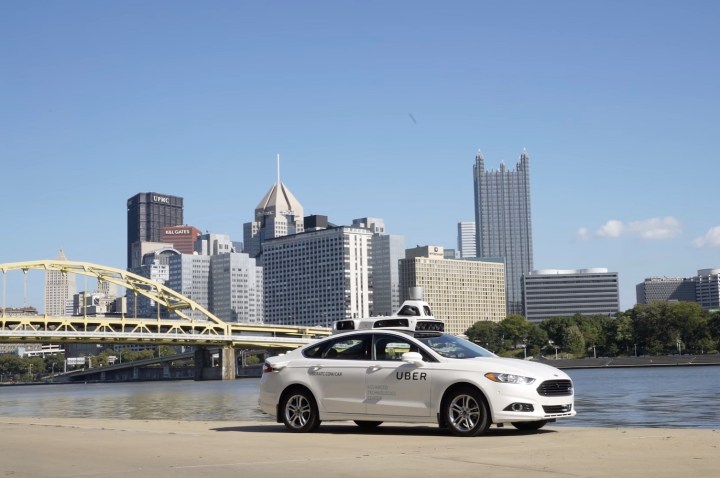
Based on a regular-production Ford Fusion Energi, the self-driving prototype was designed and built by the Advanced Technologies Center (ATC) that Uber founded about a year and a half ago in the Steel City. The sedan is equipped with an array of sensors, lasers, cameras, and radar on the roof, on both ends, and on both sides, that collectively “see” the outside world and detect possible obstacles. The information they process is transferred to a computer lodged in the Fusion’s trunk.
Read more: For tomorrow’s cars, going driverless is just the beginning
The car is completely autonomous in a majority of situations, though Uber cautions that there is always a driver behind the wheel ready to take over in case something goes wrong, and always an engineer sitting in the passenger seat to record the trip. Notably, the prototypes can’t operate in inclement weather conditions yet, and they have a hard time navigating construction zones.
The Pittsburgh Post-Gazette reports that self-driving Uber cars will be randomly assigned to frequent passengers who have agreed to participate in the program, and who are traveling to and from the city’s downtown area. Rides will initially be free, Uber told Digital Trends, in order to encourage users to participate.
What the future holds for autonomous cabs is still a little bit murky, according to Uber, but the demand for new drivers will unavoidably drop if self-driving cars become a full-fledged part of its fleet. However, one of its top executives pointed out that now is a good time to become a mechanic.
“Self-Driving Ubers will be on the road 24 hours a day, which means they will need a lot more human maintenance than cars today,” Anthony Levandowski, Uber’s vice president of self-driving technology, explained in a statement published online.
The self-driving cars operating in Pittsburgh will help Uber gather the data required to bring the technology to mass production. Ultimately, Levandowski believes that driverless cabs can greatly reduce congestion by creating a viable alternative to private car ownership in big cities. However, a spokesperson for the company told Digital Trends that a specific time frame for when self-driving Uber cars will reach mass-production hasn’t been set yet.



